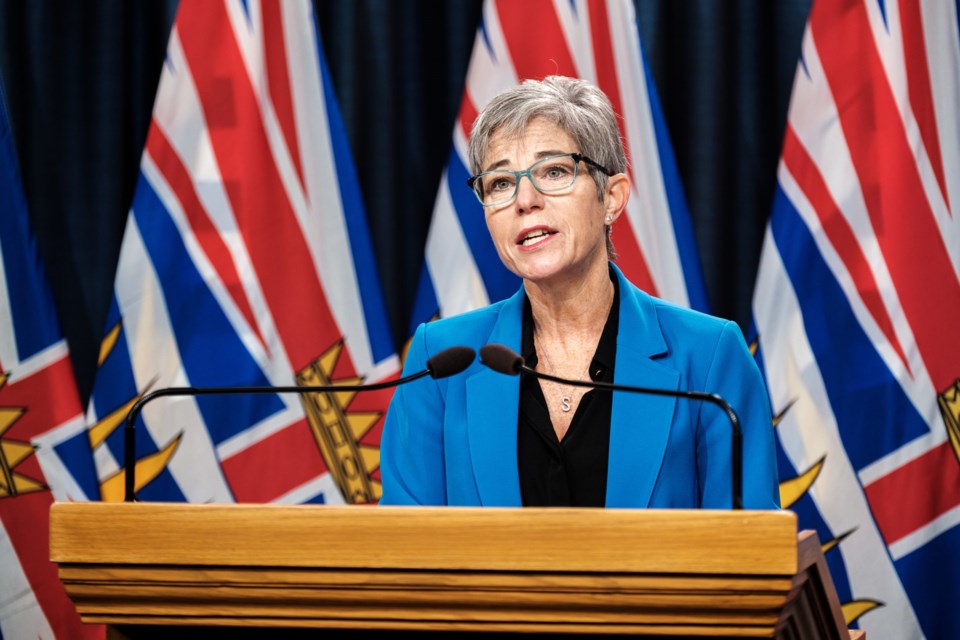The number of British Columbians hit by the province’s speculation tax continues to rise sharply, as the government tries to shift the justification for the tax from one that targets absentee foreign owners and moderates housing affordability into one that generates revenue for the provincial treasury.
New figures released this week show BC residents defined as speculators increased almost 51 per cent in 2020
More British Columbians pay the tax than any other group, with 3,423 people compared to 1,594 foreign owners. Put another way, two local owners now pay the speculation tax for every one foreign owner.
That wasn’t how the tax was billed when it was created in 2018.
“If you pay income tax in B.C., you are not captured,” then Finance Minister Carole James said shortly after announcing the speculation tax in the 2018 budget, and then backtracking on her own words.
Or: “We’re focused on people from out of province who are using the housing market as a stock market basically while the people here are struggling to find a place to live.”
Or: “The vast majority of British Columbians will not be the intended target of this tax. Speculators are the intended target.”
Or: “We’re going after those who are clearly taking advantage of the market and driving up prices.”
But it turns out, the largest and most persistent group of speculators in BC’s real estate market, who take advantage of the situation and drive up prices, are - well, British Columbians themselves.
To be clear, the speculation tax did accomplish part of its mandate.
The number of foreign owners who left residential real estate vacant has dropped 54 per cent since the tax was created in 2018. The problem is, the number of BC owners hit by the tax has risen 49 per cent during that same time period.
That leaves the speculation tax in an odd position.
If it did indeed curb foreign ownership of empty properties, does it need to be left in place indefinitely as a deterrent? And if so, what does the future of the tax look like when the majority of people paying it are locals?
There’s also the issue of affordability. The tax was always billed as a way to boost rental stock, lower vacancy rates, slow rent increases, cool the housing market and improve affordability of home purchases.
But BC’s new numbers landed on the same day the BC Real Estate Association reported the average residential price was up 18.9 per cent from 2020, sales were forecast to rise 29 per cent compared to last year and 2022 would “remain vigorous” for the real estate sector after a “frenzied start to the year” in 2021.
Nothing there indicates the speculation tax has made even the smallest blip in housing affordability, even if it has driven out an estimated 2,981 absentee foreign owners over the past three years.
Finance Minister Selina Robinson tried gamely to spin it that way anyway.
"In BC and across the country, a combination of factors, including low interest rates, changing preferences, and low supply have added fuel to an already volatile housing market,” she said in a statement that accompanied the new data.
“Through measures like the speculation and vacancy tax we are taking action and turning empty houses into rental homes for people, while making sure that we continue to build a record level of homes as part of our 10-year housing plan.”
BC is nearing the halfway mark of its 10-year housing plan, and it would be fair to say the problem of affordability is getting worse, not better.
One way the government shifts the focus away from that worrying trend is to downplay the speculation’s near-zero tax impact on housing affordability, and highlight its impact as a cash cow.
“Now in its third year, the Speculation and Vacancy Tax (SVT) is raising significant revenue that goes directly into affordable housing in the five regions where the tax applies, while encouraging owners to rent or sell vacant units to those who need them,” read the government release, highlighting $81 million in the past year or $231 million since 2018.
Hitting British Columbians who own second properties with a surcharge to help pad the provincial budget was not the stated purpose of the speculation tax when it launched in 2018.
In fact, the BC NDP took great umbrage at that suggestion when it was made by BC Green leader Andrew Weaver in 2018.
“It is actually not a speculation tax,” he said then. “What it is, is a paper wealth tax designed to be broadly applied. You can still buy a home and flip it four times and pay no kind of speculation tax on there. They didn’t actually deal with speculation.”
Weaver was right.
The speculation tax now is mostly just about generating revenue off of British Columbians that own second properties and don’t rent them in certain parts of the province. Which is not necessarily a bad thing, even if those people happen to be your parents, siblings, friends, or neighbours.
It’s just in no way what the BC NDP campaigned upon or promised to implement. And it is not helping housing affordability either.
Rob Shaw has spent more than 13 years covering BC politics, now reporting for CHEK News and writing for The Orca. He is the co-author of the national best-selling book A Matter of Confidence, and a regular guest on CBC Radio.
SWIM ON:
- As history repeats with advocates angry with the government over clawbacks, it remains to be seen if the NDP ‘have the jam’ to face them, or the sense to back down.
- In January, Rob Shaw noted the NDP point to foreign-owned properties being sold or rented out. Others point to a still-overheated housing market, and the fact that British Columbians are now the biggest targets.
- Back in 2019, SFU's Andrey Pavlov tried to make sense of the confusion surrounding the speculation tax.



